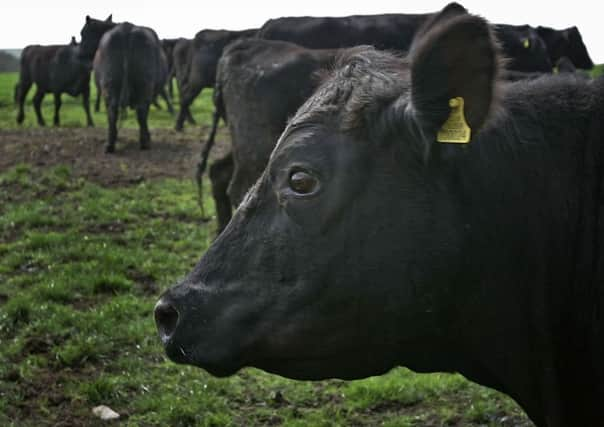Estates see farming fall as significant income stream
This article contains affiliate links. We may earn a small commission on items purchased through this article, but that does not affect our editorial judgement.


Speaking at the Rural Institute of Chartered Surveyors’ (Rics) conference, Giles Hanglin, head of research with Savills, said that while income from agriculture – through both rents and farming in-hand – had accounted for half of the average rural income stream for estates in 2000, this figure had dropped to just over a third by 2016.
But he told the packed meeting in Perth that while the fall in the value of the pound might currently be giving the opposite message, once the full implications of Brexit kicked in UK agriculture could be in for a rough ride.
Advertisement
Hide AdAdvertisement
Hide AdHanglin argued that while harsh cuts in farm support could see a considerable drop in agricultural income, the consequences of the trade deals achieved once outside the EU would have a significantly larger impact on the sector.
He said that Scotland’s farming sector would fare better if it co-operated with the rest of the UK in hammering out trade deals rather than seeking its own agreements – stating that the bigger entity was likely get a better deal.
But he warned that whichever course was adopted, reaching a trade deal which would suit the agricultural sector would be difficult.
He said that under the current EU arrangements, beef imports were subjected to 50 different trade tariffs and highlighted the fact that imports from South America, which had the world’s lowest costs of production, were subject to a 50 per cent tariff.
And while the loss of these trade barriers could mean cheap beef flooding into the country, those in the UK who sought to export beef and lamb to the continent could find themselves facing a similar tariff to get their goods into Europe.
He also warned that agriculture was likely to be given a low priority when trade deals were being discussed. But while Hanglin admitted that these effects were likely to have considerable implications for rental and land values in the future, he said that there had been little sign of this to date.
Some home-truths were spelled out at the conference over the actions and approach of land agents in dealing with rent reviews and other tenant/landlord interactions.
With the topic already under review at the request of the Scottish Parliament following issues raised as the land reform bill was being drawn up, Tom Oates, a director of agricultural agent and property adviser YoungsRPS, said that the role of agents in the tenant/landlord relationship had to be addressed.
Advertisement
Hide AdAdvertisement
Hide AdHe said that many of the disputes which had arisen in recent years could have been avoided by a more considered approach from land agents involved.
